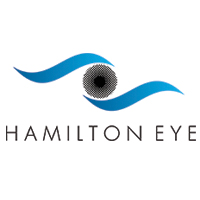Who is suitable for LASIK and who isn’t?
LASIK eye surgery is the most commonly performed and well-known laser refractive surgery to correct vision problems. An alternative to glasses or contact lenses can be laser-assisted in situ keratomileuses (LASIK).
You may be seriously thinking about LASIK, but you’re worried that you may not be ready. Thanks to LASIK and other refractive surgery, millions of people have gained better vision. There is a long, well-established safety record for LASIK and PRK, and most patients are satisfied with their results. Refractive surgery is not ideal for everyone, however. In order to qualify for LASIK or PRK, candidates must meet certain requirements.
Why it’s done
LASIK surgery can be an option for fixing vision problems.
A choice for fixing one of these vision problems could be LASIK surgery:
- Nearsightedness:
If the eyeball is longer than average then light rays may focus in front of the retina and distort distant vision. You can see objects very clearly that are similar, but not objects that are far away.
- Farsightedness (hyperopia).
If you have a shorter eyeball than a normal or too flat a cornea then Light focuses behind the retina. This makes close vision, and distant vision at times, blurry.
- Astigmatism.
When the cornea curves or flattens unevenly the result is astigmatism, causes disrupts the focus of distance and close vision
We can meet you if you are interested in refractive surgery to discuss your needs and can also discuss your eye health history and history of your previous and current medication which you are taking.
We will take several tests in order to get a better look at your corneas and determine your visual acuity.
We will determine that surgery is acceptable for you and gives the best possible results that you want. It’s a good idea to know the criteria for refractive surgery if you plan for your appointment.
- You are Healthy and young
You are young and safe and you are
If you want LASIK surgery, you need to be in good health and at least 18 years old. If any medical diseases you have or uncontrolled autoimmune disorders, including rheumatoid arthritis or Sjogren’s syndrome, probably surgery is not a good idea.
Some drugs can also increase the risk of surgery, such as immunosuppressants that can compromise the healing process. Although there is no age limit, it’s important to note that in refractive surgery the effects of presbyopia (loss of age-related vision) may begin to see on over 40 and need to read glasses.
- You have a moderate degree of refractive mistake
You have a moderate degree of refractive mistake
You may have a mild refractive error causing myopia (nearsightedness), astigmatism or hyperopia (farsightedness). Refractive surgery may not give you the expected result if your vision prescription or your eye is very high. With a high dose, the results are less stable and the risks grow. For at least a year, your vision drug must be healthy before surgery.
- You should have healthy eye
In order to qualify for LASIK surgery, you have to be free from any serious conditions that might compromise how your eyes respond to or recover from surgery. Refractive surgery (PRK or LASIK), is not ideal for those with a history of the following:
- Glaucoma
- Keratoconus
- Inflammation in the eye
- Chronic dry eye
- Eye injury
- Cataracts
- Herpes involving the eye area
You have a decent amount of thickness in the cornea. Some refractive surgery, such as conventional LASIK, requires a certain thickness of the cornea. Because the cornea needs to be strong enough to withstand the formation of the flap. However, if your corneas aren’t dense enough for LASIK, I will explain the available alternatives.
Conclusion
Without the hassle of glasses or contact lenses, LASIK also provides better vision.In general, after refractive surgery, you have a chance of attaining 20/25 or better vision. Over 8 out of 10 individuals who have had LASIK refractive surgery no longer need to use their glasses or contact lenses for any of their tasks.
Your results rely on your particular refractive error and other variables. With refractive surgery, people with a low degree of nearsightedness tend to have the most success. People with a high degree of nearsightedness or farsightedness have less predictable outcomes, along with astigmatism. In certain cases, an undercorrection can result from the surgery. If this occurs, to obtain the proper correction, you might need another surgery.

